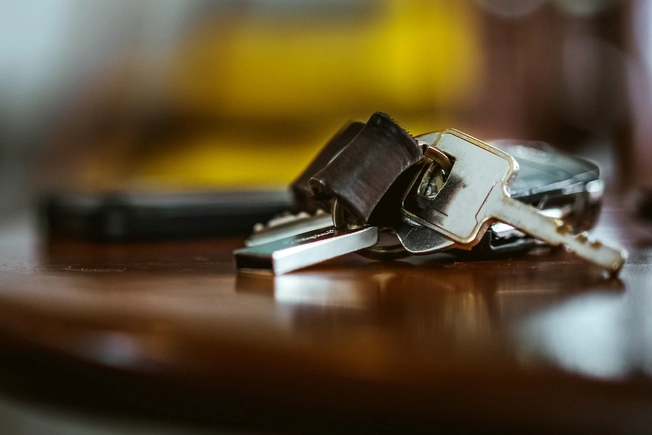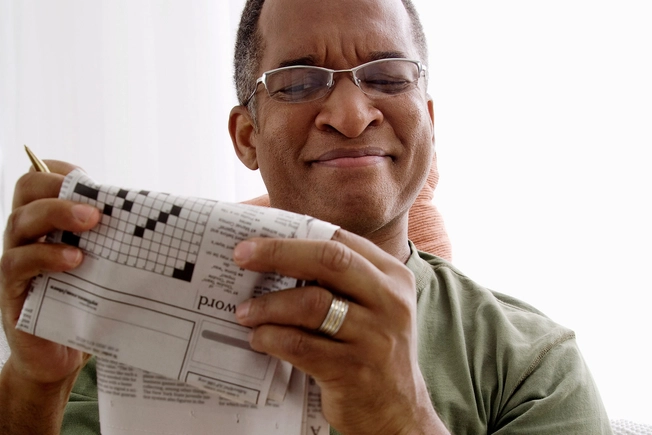- Overview
- Diagnosis & Stages
- Causes & Risks
- Treatment
- Living With
- Complications & Related Conditions
- Caregiving
- Support & Resources
- View Full Guide
Is It Aging or Alzheimer's?


Is Your Memory Slipping?
We all forget things sometimes, especially when life gets busy. You may start to notice this happening more often as you get older. Mild memory loss can be a normal part of aging. It doesn't necessarily mean you're going to have dementia. Only 1% of people over age 65 with normal age-related memory issues will get dementia each year.

When Forgetfulness Is a Problem
If memory loss makes it hard for you to handle your daily tasks, that's a sign you shouldn't ignore. Are you forgetting things you only just heard? Asking the same question over and over again? Relying on lots of paper or electronic reminders just to get through the day? Talk to your doctor if you or your family notices that happening to you.

Hard to Plan or Solve Problems?
Everybody makes a mistake sometimes. Maybe you made an error in the checkbook last month or paid the wrong amount on a bill. That's normal stuff we all do. But if you are really struggling to do things like follow directions in a familiar recipe or keep track of bills the way you used to do, it could be a warning sign of memory problems.

Struggle With Everyday Tasks
Having trouble using that TV remote? Forgot how to set the microwave? If you need a little help now and then with those kinds of things, it's likely nothing to worry about. But if you have problems doing regular activities you're used to doing, like driving to places you always go, playing favorite games, or finding your way at the grocery store, it may be a sign of a more serious memory issue.

Where Did I Park?
We've all had it happen. You come out of the store and think, "Now, where'd I leave my car?" It's normal to forget where you parked now and again. If it happens regularly, though, check with your doctor. It could be a warning sign of dementia.

Can't Find Your Keys
Most of the time when you forget where you've left something, like your keys or your glasses, you should be able to think back, retrace your steps, and find whatever it is. If you notice you're losing things all the time and you can't go back and spot them, that's a common sign of a bigger memory problem.

Losing Track of Time
Most of us have woken up and thought to ourselves, "What day is it?" It won't take you too long to figure it out. But if you are often losing track of dates, seasons, or the passage of time, that's another sign of real memory trouble.

How Did I Get Here?
If you walk into a room and can't remember what you were doing, that's not cause for concern. It happens to all of us. But people with Alzheimer's disease sometimes forget where they are. Or they find themselves somewhere and don't remember how they got there. If that's a problem you have, it's a good idea to get help.

What's the Word for It?
It's normal to have trouble finding the right word sometimes. Or you might use a word the wrong way. Not to worry. But people with Alzheimer's disease often start to have real trouble talking or writing. They might find it hard to recall the right term for familiar objects or the name of somebody they know well. If you're struggling with names, words, or what to say next, it may be a sign of more serious memory loss.

Withdraw From Friends and Family
Are you avoiding friends, family, or co-workers? Is it hard to carry on or follow a conversation? When memory problems become more severe, it's common for people to lose interest in hobbies, social events, or other activities they used to like doing. If that sounds like you, it's time to talk to someone about it.

Take a Memory Test
If you aren't sure if what you're going through is just regular aging, a doctor can help you figure it out. They'll know if the memory loss you have falls within the normal range or not. Your doctor will ask you questions and may ask you to take a series of tests. They may also check you for other problems that can look like dementia, such as medication side effects or depression.

Is There Anything I Can Do?
If your memory is OK but you're still worried, there may be something you can do about it. People who spend time reading, solving puzzles, or otherwise staying engaged are less likely to get Alzheimer's. It's possible that these activities can help you to keep your mind sharp. It's also a good idea to lower your stress, eat right, and exercise.